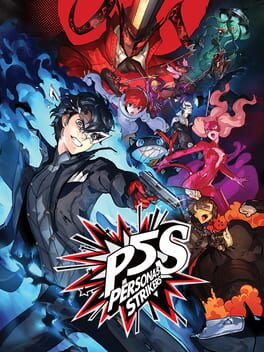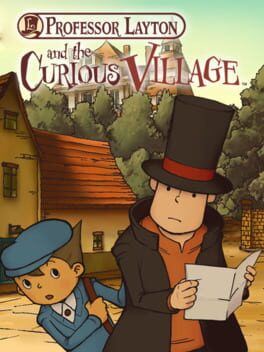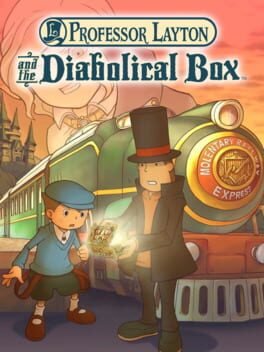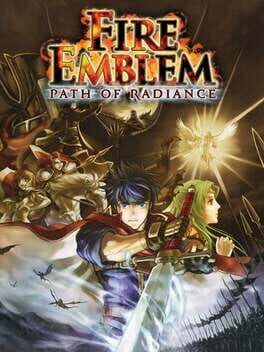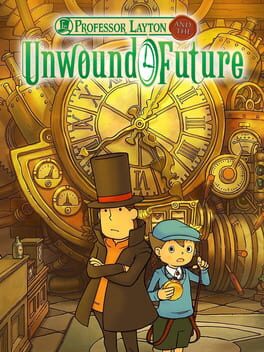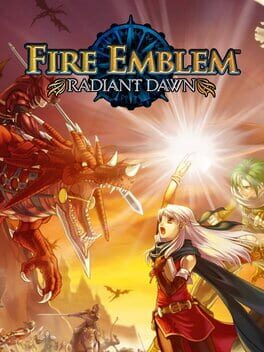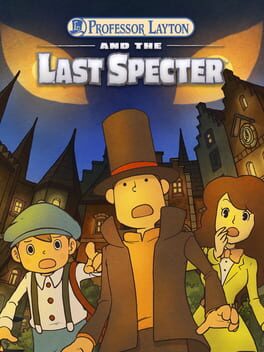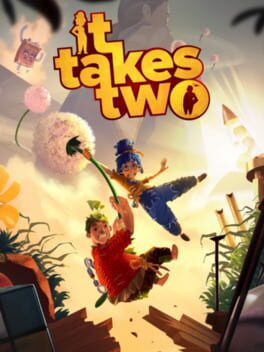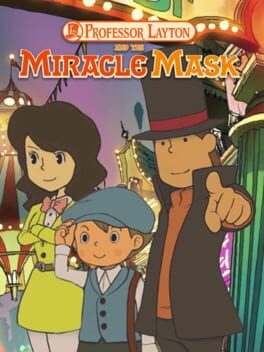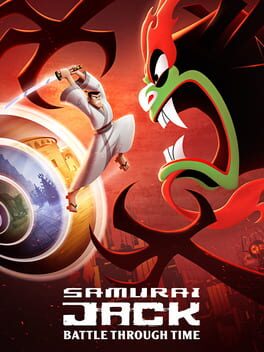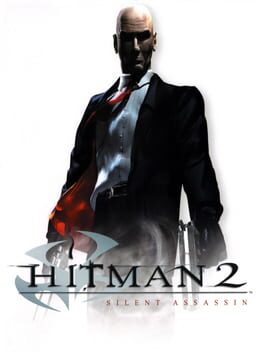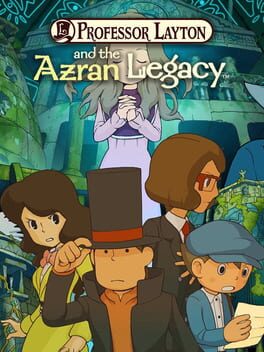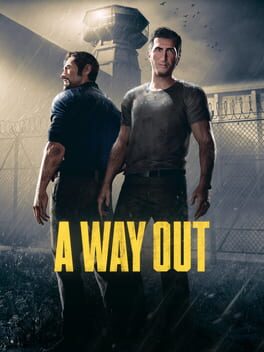Nyth_Grandbeard
2020
A competent sequel to the brilliant Persona 5. This game from a story perspective does little new, and is rather predictable. Despite this it is still an enjoyable time listening to the cast of characters go through fun scenarios, especially with the new characters that join the Phantom Thieves. From a gameplay standpoint it feels less like a warriors game and more of a regular action game ala DMC, and Bayonetta (with less depth of course.) If you were a fan of Persona 5, and Persona 5 Royal this game still provides more than enough entertainment value for the price of entry.
Ichiban Kasuga had big shoes to fill taking the place of Kazuma Kiryu as series protagonist, and he does it with flying colors. Ichiban is a more goofy, and rambunctious character than Kiryu but his morals, and beliefs align in a way that feels natural and non invasive to long time fans of franchise. The game play takes a huge shift into turn based combat as a series first, as opposed to it's action game roots, and it pulls it off with flying colors. The way Ichiban's love of Dragon Quest and desire to become a fantasy like hero as an explanation for the game play shift is genius, and fits the tone of the game well. And while this game definitely takes the goofy angle to the next extreme, it doesn't take away from the series staple heartfelt and dramatic moments. My major complaints with this game is that it takes a while to truly get started. It feels like it meanders a little bit too much in the middle, but once it picks back up you're in for a ride. Also there is a really high difficulty spike towards the end of the game which is a little ridiculous, even for an JRPG vet such as myself. The level pacing could've been a lot better, but at the end of the day the grinding wasn't the worst i've ever experiences. All together, Yakuza 7 (Like a Dragon) is a perfect start to a new beginning, and I can't wait to see what zany adventures lie ahead for Kasuga.
As the first entry in the Professor Layton saga, The Curious Village is both a unique, interesting, yet simplistic take on the Point and Click genre of games. It's presentation as a cartoony European adventure in a mysterious and hidden Bavarian styled town is incredibly cozy and enjoyable. This combined with the folk-y accordion soundtrack carries the game for the most part. The story is a little simplistic, but engaging none the less, however the major twist on what the secret of the village is left me with a kind of odd and sour feeling and is probably my least favorite part of the game. The puzzles were fun enough to playthrough, but some puzzles felt too similar to others thus making some of the later ones too easy. All in all Professor Layton as a series has a fun cast of characters and a good enough formula that can easily be improved on, so I can't wait to see what the series has in store next.
Professor Layton and the Diabolical Box is a great follow up to the Curious Village that improves upon some of the issues I had it. Firstly I feel like the story is a lot more engaging in many ways than it's predecessor, especially when it comes to the big twist at the end which was my biggest issue with Curious Village. There is also a lot more variety in the puzzle selection with this entry which allows for a more interesting game play session every time you boot up a save. This game is not without it's flaws however, as the start of the story felt incredibly slow, especially when in comparison to the previous entry. Despite this once the story gets going, you are in for a great time full of mystery, intrigue and heartbreak. I can't wait to see what the next entry holds as I can only see it going up from here!
Fire Emblem Path of Radiance is very interesting and unique entry in the series out of the few I have played as of writing this review. As chapter 1 of the Saga of Ike, and the plight of the Laguz, the game's themes and subject matter feel more mature and profound when compared to some of the other entries. The world of Tellius is wrapped in lots of gray morality, and complex issues that really bring the world to life as you watch the various factions that make up the world share intricate politics between each other. The gameplay is also very fun to play through, as there are various little quirks and design flaws in the AI that allow for a fun and sometimes exploitable way to take down certain maps without feeling broken. There are of course somethings that the game can improve on such as stream lining some of the menus, as well as making certain mechanics more clear to the player. There is also the issue of this game's translation being a little bizarre at times. This game tackles a lot of adult and mature themes, but the wind can really be taken out of a scene when school yard insults are being tossed around every two seconds, but it's not the end of the world as none of the key plot points, or story is lost in translation. My biggest gripe with the game is that the pacing towards the end feels so disjointed and off balance in an otherwise well paced adventure. Perhaps it had to do with the looming thought of the Wii being unveiled right around the corner that led to them rushing the end, or maybe the feeling of making the game's run time a little too long. What ever the reason the last 9 or so chapters felt kind of like a chore to get through, however there were some stand out moments for sure. I cannot wait to see what adventures Ike and the Greil Mercenaries get up to in the next game as I'm sure it'll be exciting.
The Unwound Future is perhaps one of the best puzzle games I have played in recent memory. The puzzle selection is just superb, the environments to explore are amazingly detailed for a regular DS title and it's all amplified by the wonderfully zany and cartoony world that Professor Layton and crew inhabit. The story this time around takes some emotionally impactful twists and turns i'd never to expect to see in this particular series. The best way I could describe the unwound future is that it's both parts gleeful, and sad and does both with grace. The twist at the end of this game is perhaps the most unbelievable out of the bunch but by this point it's to be expected, and it works perfectly to convey a resonant and impactful story that will surely leave you thinking about the events that just unfolded for years to come. My only major complaint is that i'm not 100% on board with how Layton acts so dismissive around Flora, but it seems like i'm not the only one of that opinion. Otherwise this is an excellent journey and great way to cap off the original trilogy of the Layton Series. Next is the Prequel trilogy, and i'm really curious how they will approach the story from that angle.
Fire Emblem Radiant Dawn is perhaps one of the best experiences that the Intelligent Systems team have composed. The story is a direct sequel to Fire Emblem Path of Radiance, that takes the world, characters, and politics set up in that game and expands upon it all greatly in a grandiose and exciting adventure. It almost feels like Path of Radiance acts as an extended prologue to this game's story which is impressive considering that PoR is it's own epic story. The story in this game takes ton of characters and concepts from the previous entry and takes them in crazy an unique directions I never expected them too. The gameplay on the other hand is relatively the same as PoR's while tweaking a couple minor things and mechanics such as the UI and Award EXP which was fine by me considering that the gameplay loop of PoR was pretty addicting and fun. Of course there could always be little quality of life things they could've fixed here and there but it was nothing that took away from the experience. Unlike the previous game however, the story is broken up into 4 acts with 3 separate playable teams of units each with their strengths and weaknesses. Personally I would have preferred if we had stuck with Ike and his comrades for the length of this game, but playing as Team Micaiah, and Team Elencia wasn't the end of the world. It's just that Ike's chapters felt more engaging and interesting to me personally, but I can see how people would prefer Micaiah's story. I can say with complete certainty though that this game handles the multiple teams concept better than how Fire Emblem Echoes did, as I found every team in this game were comprised interesting and fun primary characters, unlike Echoes where I found Celica a complete bore as a character (Alm was awesome however.) All in all I think the Radiant duology are some of the best Fire Emblem games you can play, it's just a shame that games are an absurd amount of money on the secondary market. Hopefully one day Nintendo will see fit to re-release both games in a collection or perhaps give them the Echoes treatment so more people get to enjoy these great games.
Professor Layton and the Last Specter is the first game in the prequel trilogy for the series and it wastes no time letting you know how much more expansive and immersive the world has gotten since it's inception. This map and it's characters feel incredibly lived in, and full of personality. That's the first thing I noticed starting this game and it's what hooked me immediately, and that's what I must really applaud this game for. Out of all the Layton entries, this game has one of the most interesting and engaging introduction chapters out of the series thus far, and quickly it became my favorite entries. HOWEVER, this changed over the course of the game's story. As the game creeped closer and closer to it's conclusion I quickly realized that the ending felt incredibly rushed. It felt like it moved a breakneck pace from Layton and crew not clear on what was going on in the town to having it all pretty much figured out in the span of like a chapter which felt kinda off considering the mysteries felt more gradually revealed in previous games. Despite this it didn't hamper my experience at all as I still found the origin story of Luke and Layton's friendship to be incredibly compelling as watching Luke start off as a weary and cynical shut in, blossom into an excited and cheerful boy felt natural, and heartwarming. The gameplay remained mostly the same however I felt there was slightly less puzzle variety out of previous entries, but that could just be me. The focus seemed to be mostly on math puzzles and less on logic puzzles which sucked for me considering I'm not good at math, like at all. Despite this I really enjoyed my time with Last Specter, and I'm excited to see the overarching mystery of Descole play out for the remaining 2 games in the main series.
NieR Replicant is definitely a worthy re-release of the original in just about every way. When It was initially announced two things made me nervous, the lack of the Father Protagonist and it seemingly being Automata wearing the original game's skin. Thankfully I can say that it is neither of those. Firstly I was hesitant on the Brother Protagonist because, despite it being the original main character, I had come to love the Father Protagonist due to his relationship with his daughter being more relatable to me than an older brother and a younger sister. I had also come to love Jamieson Price's voice work in the original release as the protagonist so having a whole new dynamic, and a whole new voice for the main character made me nervous. Thankfully I can say despite the minor characterization differences between the two protagonists, the Brother's story is still very engaging and as a character is very enjoyable. And if you were curious the core of the story is completely unchanged as well so it made me glad to see all the story beats still present and then some. The second concern came from my fear that they were going to try and Automata-fy the original game, because if you know me I really did not enjoy Automata, but I am glad to say after completing the game there was nothing to worry about. The game play is certainly more refined and quicker paced than the original release but still retains that level of simplicity and easiness to master that I really enjoy, and I wouldn't want it any other way. This re-release is not perfect however as the some of the re-recordings of the soundtrack's music feels a little lacking in some places with songs such as Shadowlord. I also wish there was at least an option to play the father, but that's just a minor nitpick to say the very least. The new content added to this re-release also had me concerned but I can say with confidence that I am left satisfied with all the additions that the team made to the story, to not get into spoilers. I see this as a true return to form for the series, and I hope that if and when NieR 3 happens they approach it the same way they approached the new content and gameplay for this rerelease.
2021
It Takes Two is the first Hazelight game i've had the joy of experiencing and it did not disappoint. I heard so many good things about their previous games however I had always put off playing them for one reason or another. But when my significant other suggested to pickup their newest release I decided what the heck and give it a try and I'm glad I did. For about two generations now I've been asking for another good couch co-op experience from the days of my youth with good co-op PS1 and PS2 titles and this game took me back to that feeling the entire length of the game. What I really enjoy about the gameplay in particular is that it constantly mixes up the formula chapter to chapter. Every new arc in the story comes with new mechanics for each of the players to solve different kinds of puzzles which results in always keeping stuff fresh. Despite this there are some chapters which shine far more than others, my least favorite out of all the chapters has to be the Garden segment of the game, because while it does have it's own unique set of mechanics and puzzles to solve, felt a little run of the mill compared to the rest of the game's offerings. Despite it's occasional low points the game is still packed full of adrenaline pumping sequences of quick cooperative puzzle solving that will surely keep most anyone entertained. On top of the solid gameplay provided is a realistic story about the hardships of a relationship and how two people can start to grow their separate ways... that is until a magical book named Dr. Hakim shows up to try to mend the broken relationship of both protagonists May and Cody not only or their sake but for the sake of their daughter. The story of a divorcing couple of parents reigniting their passion and coming together once again certainly isn't new, but it's this game's approach to the subject matter, and the dark comedy sprinkled in that keeps you coming back for more. All in all It Takes Two is a perfect game to play with a significant other, or friend that will leave you feeling satisfied at the conclusion, and I can't wait to give Hazelight's other offerings a go!
Professor Layton and the Miracle Mask is not only the first 3D installment in there series but also marks the first 3DS game. The transition to 3D is as graceful as it could've been I suppose but that doesn't mean it's perfect. The core fundamentals of the Layton gameplay style we have become accustom to for the last four games remain largely the same, but have been turned on their head in such a minor way that it can throw anyone off. Previously the main visuals resided on the bottom screen of the DS while in this entry the main visuals find their home on the top screen, also the navigation has been completely overhauled as movement has been changed from tapping corners of the screen to instead tapping locales on the map. This in of itself is not a fault of the game in anyway and functionally works as intended but leaping from four games that function that exact same way into a new take on the control scheme is sure to throw anyone off. Also this game tries to mix up the Layton formula further by adding things such as on rail horse back riding, and dungeon crawling which is actually a welcome addition in my eyes to help break up the regular point and click and puzzle solving. Going back to the visuals for a second, while seeing the wonderful and zany character designs of Layton portrayed in 3D certainly is novel, I can't help but feel in this entry that some of the 2D artwork lose some of it's finer detail in translation. It's certainly not game breaking or ruins the rest of the series for me but I will kind of miss the illustrated character portraits from the first four entries. The story this time around tries to give us an emotional look back on the life of Layton much in a similar vain to Unwound Future, and while there are certainly some emotionally impactful stuff in here, a lot of it kinda falls flat thanks to the inconsistent pacing throughout the entirety of the story. I will say however my favorite chapters in the game are the ones where we get to live in the shoes of a teenage Layton as he attends school and lives in his small village, in fact I wouldn't mind a whole game like that but I digress. The main plot twist at the end of the game is perhaps the most predictable out of the whole series, certainly doesn't mean it's bad, in fact I quite liked it, but you can definitely see it coming a mile away. All in All Miracle Mask isn't the most smooth transition to 3D i've ever seen but it isn't a failure by any means. It is still up there as one of the better Professor Layton titles, and I strongly recommend it to any fan of the series who may have missed out on it on release as it certainly does not disappoint.
Samurai Jack: Battle Through Time is an interesting case where a tie in game in game isn't necessarily great nor is it bad. The game takes place towards the final minutes of the final episode of the final season of Samurai Jack where it diverges from the show where Jack is stopped from escaping the evil Aku's influence and is instead dragged into a pocket dimension where he is forced relive and battle through some of his most iconic moments from the show. The game does require a little before hand knowledge of the Samurai Jack IP for you to understand the characters and their motivations as this game doesn't really provide much in the way of context, it just kinda expects you to know the world of SJ. The characterization of certain characters is on point, and many (if not all) of the voice actors return to reprise their roles for this entry, so you will feel right at home as a Samurai Jack fan. The visuals are also as accurate to the show as a you'd expect a 3D rendition of the show could be, and sometimes it can leave you breathless with how beautifully some set pieces transition to a 3D space. That can't be said for every environment however, as many of the levels, while interesting to go through can be pretty barren of details to keep your attention. It also doesn't help that a lot (if not all) of the game's animations are mo-capped which can look great in other games, but for a show like samurai jack that uses limited animation to it's advantage the fluid mo-cap feels a little weird from fans coming from the show. The gameplay is another point of contention I have for this game as the combat feels pretty stilted. I'm not really an elitist when it comes to action games, as I have a pretty high tolerance and appreciation for stiff combat (I love how the legacy of kain series and original NieR games play for example.) But this game can feel particularly stiff, especially at the beginning where you haven't leveled up Jack's skills at all. Certain animations can not be stopped once started such as for the dodge animation which can really break the flow of gameplay especially since the dodge is particularly slow. If you can master the timing on the animations though it makes it less of a headache to deal with but is still annoying none the less. When you do a dodge roll or get knocked down you have to wait until the complete animation executes before you can pull off another move whether it be an attack or another dodge and it can really throw you off if not prepared. The balancing also fluctuates a little too much for this game as in one room you can clear 20 enemies with ease but 5 minutes later your on a moving train fighting a boss rush where no matter what weapons you use you can only chip damage them. Thankfully there are things such as skill upgrades, and weapon upgrades that should help you on your journey but this game could definitely benefit from having better balancing overall. In conclusion Samurai Jack: Battle Through Time is a fun, but mediocre romp through the world of Samurai Jack that takes the story on a little detour to enjoy some of the series' most iconic moments. It's certainly a game for the fans as I feel an outsider would be hard pressed to find much enjoyment out of the gameplay alone. But if you are a fan of Samurai Jack, and love the series for what it is, it certainly is far from the worst tie in game ever made, and it certainly is far better than other of the Samurai Jack video game offerings.
Hitman 2 Silent Assassin is an interesting experience to say the least as some one who came directly from the reboot trilogy. There is very little about this game that feels particularly polished yet you can't really blame the devs too much as this was back when they were trying to find that Hitman formula we have all come to love. The first game, Hitman Codename 47 started development as a standard FPS game but was later transformed into a pseudo-stealth game by release, however it didn't really accomplish that goal too well. With this entry IO got a chance to start over again while continuing 47's story. This game introduces mechanics such as corner leaning, and crouching which help you maneuver through the maps in a somewhat of a stealthy manner. This game unfortunately does fall flat in this regard though thanks to the incredibly slow pace of the stealth movement and the super jank of the enemy AI. You can be following any enemy's particular movement path while crouching and doing everything right but for no discernible reason the enemy will just turn around and ruin your run. There is also the problem where some of the maps are just too big for their own good. Stuff like St. Petersburg, and the mountains of Japan are just colossal (for a Hitman game) for no real reason outside of padding the play time, which speaking of padding there is a lot of it in this game with it's stuffy 21 locations you visit, some of which are pretty fun to play around in. My favorites include the Yakuza Stronghold mission, and the Indian Cult Island as they provided a real template of what future Hitman games would build their level design around. As for the story, it is nothing too crazy which is inline with the other Hitman games, however unlike the other Hitman games i've played the story does have a vary particular level of funk, and cheese in it's tone that I really don't hate. Following the end of Codename 47, Agent 47 has decided to find a new lease on life by trying to live peacefully at a catholic monastery before being thrust back into the life of murderer for hire when his priest buddy gets kidnapped. Speaking of B-Movie cheese this only compounded by the wonderful score fro Jesper Kyd. The Euro-pop/Movie score soundtrack really fits this world that IO had developed and it makes me kinda wish we got to see what he would've composed if he stuck with the reboot trilogy, my favorite song being the Main Menu theme. Despite it's jank, and despite my lukewarm feeling on it I recognize this game as a very important piece of the Hitman pie, as it is the first true stealth game in the series, even if it doesn't pass with flying colors and you can play much worse for 13-14 hours.
Professor Layton and the Azran Legacy is the final game in the main Layton series, and it takes the story to heights the likes of which we haven’t seen before in these games. Being a prequel game to the series it feels a bit odd as the stakes laid out over the course of this games story are so grandiose in comparison to the original trilogy that the stories told in that game dwarf in comparison. But that said, that isn’t necessarily a great thing, I feel that the huge leap in what’s at stake can almost feel like a jump the shark type scenario for the series despite being built up from through Last Specter and Miracle Mask. Despite my shaky feeling about the larger than life narrative what makes me really appreciate the game once again is it’s characters. The new cast of characters introduced for the prequel trilogy seemed a bit shoe horned in at first, but as the trilogy told its story I became more invested in the microcosm that they inhabited watching all the characters relationships unfold into an ultimate climax in this entry was very satisfying. As for the gameplay, it takes the 3D Layton formula set up in Miracle Mask and improves on it just slightly to make the whole experience more enjoyable. Navigating the map and looking around an area remain largely the same but have been refined ever so slightly that it feels more enjoyable to control and explore, which was my biggest gripe with Miracle Mask. The game’s puzzles seemed to ease up on the math puzzles which I greatly appreciated but one thread that has continued throughout the prequel series the almost lack of any real creativity with the puzzles that we saw in the original trilogy. This does not mean the new puzzles are bad, far from it, but looking back at puzzles from Curious Village you can tell they were starting to run out of steam here. As for the environments you explore this game perhaps may be the largest in the series yet, as Layton and Co go on a globe trotting adventure exploring places like the Wild West, a tropical island, a Romani Village, amongst many others which are all displayed in high detail and brought to life with lovable NPCs and wonderful music. Overall I had a great time with Azran Legacy, and it is a great send off to the mainline series of games even if it bites off more than it can realistically chew. Any Layton fans should leave this game feeling satisfied at the very least.
2018
A Way Out is an interesting cinematic co-op centered game from Hazelight Studios. My first exposure to Hazelight Studios was with their most recent entry (at the time of writing this) It Takes Two which was also a co-op game that had numerous fun puzzles to solve that require both players to think fast and outside the box. Going into A Way Out I was just expecting something very similar, and what I was left with was something that definitely had some light puzzle solving, but focused more on the cinematic tale brought to us from the perspective of two convicts named Leo and Vincent. The gameplay is split screen and allows both players to control their own separate character chosen before loading the game up. In this game you will do a lot of interacting with the environment and talking to NPCs, or blazing through quick action set pieces which is a way different pace than It Takes Two, and while that’s not what I was expecting it certainly wasn’t bad. In fact, for the story it was trying to tell I felt that the style of gameplay this game takes is most definitely effective and keeps the players engaged as they go through the story full of twists and turns. The game starts off with our protagonists scheming a plan to escape prison to get revenge on a common enemy, and as the game goes on you get to explore many different locations big and small and witness the growth of both protagonists. A majority of the puzzle solving is to be had in the prison segment of the game but there are still some small ones here and there later on in the story. Everything comes to a head for an epic conclusion at the end that will really test both players skills which was very satisfying and emotional. While A Way Out is not as refined as its follow up, It Takes Two, it still stands on its own with its own merits as a great game and awesome co-op experience. If you are coming in from It Takes Two you may be left a little disappointed knowing that the puzzles kind of take a back seat with this game, but I truly believe if you give it time it will grow on you.
